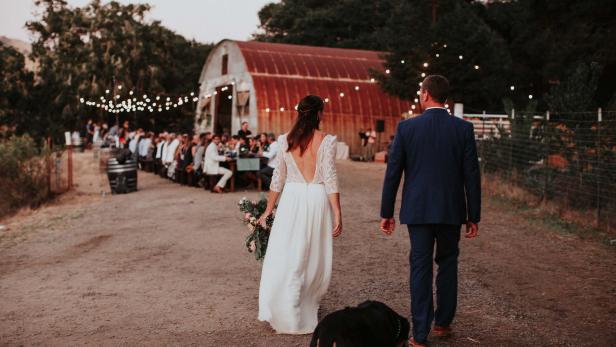



Article by: Hari Yellina
Farmers are cashing in as agritourism and rural events expand in popularity. Walking down the aisle to the sound of bellowing cattle isn’t everyone’s preferred wedding, but as agritourism and rural events pick up steam, farmers are cashing in. Couples who are foregoing the chapel in favour of the paddock are doing it during a difficult time in Queensland, where several districts have been in drought since 2018. With rising input costs putting even more strain on farmers’ budgets, many are broadening their operations by hosting visitors. When Ryan Anderson and his wife Niki converted their cattle ranch into a farm stay and event site in Yeppoon two decades ago, they were ahead of the curve.
Mr Anderson believes that expanding to shield their livelihood from weather and commodity price volatility makes sense. He explained, “About 20 years ago, we diversified and attempted to get away from a reliance on seasons and cattle price changes.” In 2009, the couple built two cabins on their property along the creek and developed a lodge to improve capacity and utilities. Mr Anderson remarked, “It’s a really fantastic site for guests, it gives them a unique experience.” “They’ll get to see how a property appears, and we’ll give them a tour and show them around.” Folks get a lot out of it, especially people from other countries because they don’t get that kind of exposure anywhere else.
During the pandemic, Mr Anderson added, the comprehensive strategy paid off. “When COVID hit, the diversity away from agriculture and into the tourism economy completely swung around the opposite way,” he added. “That’s been a huge step forward for us.” Kim Houghton, chief economist at the Regional Australia Institute, said it was usual for agricultural enterprises to diversify, with about half of farms earning more than half of their income from sources other than farming. “It’s an efficient way of regulating seasonality and obviously output ebbs and flows,” he said. In fact, there are a lot of farming families who do a lot of different things.
As COVID lockdowns drove people to areas “lower down their bucket list,” Dr Houghton stated that growth in regional population and domestic tourism have been the drivers of an emerging agritourism and rural-based events business in recent years. Regional populations have been steadily increasing – faster than most people expected. Everyone was concerned about domestic tourism failing. “I think we started to see more interest and investment in growing and broadening that product in a rural setting, whether it’s a farm stay or a farm location for a particular event,” Dr Houghton remarked.
Bernadette Melrose, owner of The Orchard near Yeppoon, said the many revenue streams were excellent, especially when her orchard collapsed. “In general, you have a terrific year and then a bad year… So, having a secondary source of money is beneficial. Ms Melrose explained that the business’s rural, outdoor location allowed it to operate more freely under COVID rules than those in cities. “It was a tremendously busy year last year, and it’s going to be a really busy year this year,” she remarked. “I believe people were adamant about not having a typical wedding,” Ms Melrose added. The difficulty for the sector going ahead, according to Dr. Houghton, is to maintain interest and match market expectations.
“It’s difficult for our smaller centres since these tourists frequently have different expectations,” he said. If the products maintain up with expectations, the product diversifies, and as the sophistication of some of those rural-based tourism and events offerings grows, you have a lot greater opportunity of selling it as a long-term destination.